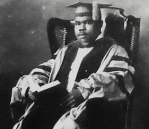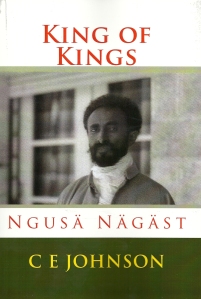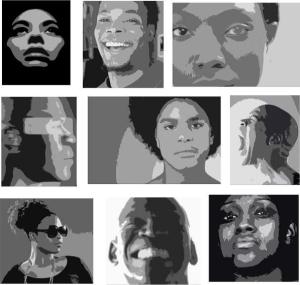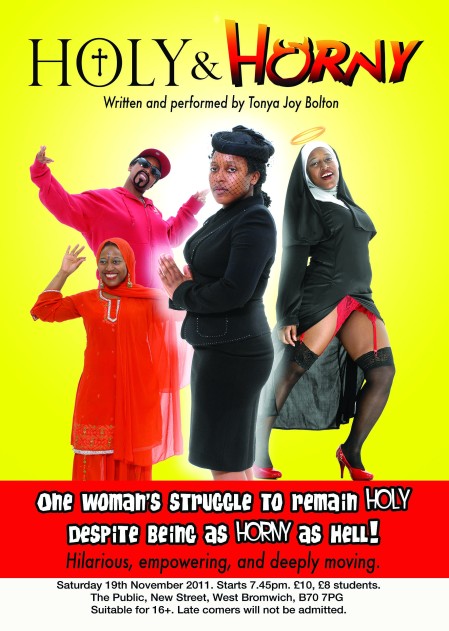________________________________________________________________
“A people without the knowledge of their past history, origin and culture, is like a tree without roots.”

Marcus Mosiah Garvey (1887 – 1940)
Every year in October we celebrate BLACK HISTORY MONTH. Black history is with us every second, minute, hour, week, month and year. PANTHER NEWSLETTER’S CULTURE CORNER will attempt to enlighten you with what they never told you in your history class. Our story will be told right here – So enjoy the journey of clarification.
________________________________________________________________
Blacks in Britain (Part Seven)
Not widely known – But true…
In 1931, a West Indian doctor Harold Arundel Moody founded the missionary and welfare League of Coloured Peoples in Merseyside Liverpool. Read more about Harold Moody here…
Between 1939 – 1945, the second (and larger) wave of Afro-Caribbeans arrived in Britain to fight in World War II. In all, several thousand workers migrated as volunteers to fight in the RAF and other branches of the armed forces, and to serve as military technicians. Many others were also recruited by Britain to work in its Mersyside (Liverpool) munitions plants.
1940 – The Passage of the Colonial Development and Welfare Act. was launched in Parliament.
Also in the early 1940’s, the British Colonial Office began welfare work for black seamen and their families in seaport towns. The Colonial Office aligned their work with the missionary work of the League of Coloured Peoples. (L.C.P).
In 1941, The British Ministry of Labour opened a welfare hostel, the West Indies House in Liverpool.
Also in early 1941, 110 Jamaican workers (plus ten stowaways) arrive on the HMS Ormonde.
In April 1941, Labour Minister M.A. Bevan argues that Britain should “dismiss the idea” of bringing West Indian labourers to Britain “from the start.” The idea had also been rejected two years earlier by then Labour Minister George Isaacs. At that time, the problems of “shipping and accommodation” were given as hinderances to the scheme. Although the 1941 arrival of the Ormonde had proven Isaacs wrong, the possible arrival of additional West Indians caused fear within official circles that a “colour racial problem” would arise in Britain.
In 1944, the Education Act combined church, state, and charitable schools that had once been seperate under the control of local education. At the centre was a system of “checks and balances” that would mediate between funding at the national level, the schools general autonomy, and the termination of educational policies at the local level. Detractors in the 1960’s and 1970’s would later maintain that the system institutionalized religious and class differences and, from its inception, automatically shuttled most Afro-Caribbean children into programs for “under-achievers,” and declared most Asian children inferior due to cultural and language differences. The concept of an un-unified education system would remain so until the Thatcher years and the Education Reform Act of 1988.
________________________________________________________________
FAMOUS BLACK PEOPLE PAST AND PRESENT
________________________________________________________________
HAVE YOU EVER WONDERED WHO INVENTED THE CELLULAR PHONE?
Ok, you are on a TV game show and have to answer this question to win £10M. The question is, who invented the cellular phone? In all probability most of us could not answer this question. Those of you who know are in that small minority.
The inventor of the Cellular phone is Henry Sampson, Jr. Sampson is an African-American from Jackson, Mississippi. He attended Morehouse College and transferred to Purdue. He received an MS in Engineering from the University of California. He was awarded an MS in Nuclear Engineering from Illinois and his Ph.D from Illinois. Sampson is the first African-American to receive a Ph.D in Nuclear Engineering.
In 1971 Sampson was awarded a patent for the “gamma-electric cell.” This technology was used in the cellular phone. Hopefully Dr. Sampson was well rewarded for his efforts.
Alright, now that you have this information join the “Tell a Brethren and Sistren Club” by passing this information on to more of us.
Barbershops and Beauty Salons are great places to discuss this information.
During the week let our Anglo Brethren and Sistren know about Dr. Sampson. This is called the “Breakdown the stereotype campaign.”
________________________________________________________________
TRIBUTE TO OUR S/HEROES
Queen Judith of Ethiopia (ruled 940 – 980 AD) – {Falasha conqueror of Ethiopia and destroyer of Christianity} – In 940 AD, though some authorities give slightly earlier dates, Judith, a Falasha conqueror, seized the throne of the Ethiopian city of Axum and proclaimed herself Queen. Inspiring dread in many Christian minds, she destroyed the churches, killing thousands in the process. Her campaigns ended both the thousand-year supremacy of Axum and also an era in Ethiopian history. An old history book, History of the Patriarchs of Alexandria, mentions that the King of Axum begged the Patriarch of Alexandria for help against this onslaught – but none came. Judith ruled unchallenged for around 40 years. Succeeding her was the Zagwe Dynasty, who ushered in a golden age.
Queen Oluwo of Ife (1000 AD) – {Yoruba Queen who paved the southern Nigeria city of Ife} – Professor Ekpo Eyo, a former head of the Nigerian museums system, narrates a curious oral tradition concerning Oni Oluwo, a distinguished Yoruba ruler. Apparently she was walking around the capital city of Ife when her regalia got splashed with mud. Oluwo was so upset by this that she ordered the construction of pavements for all the public and religious places in the city. Archaeology confirms that: “Pavements are widespread in Africa. Potsherd pavements are the most common types of pavements known in West Africa. The most consistent reports about excavated pavements in West Africa have so far come from Ife, specifically the sites at: Oduduwa College, Lafogido, Ita Yemoo, Obalara’s Land and Woye Asiri Land.” The pavements embellished the courtyards and often had altars built at the ends against walls. Many of the pavements had regular and geometric patterns, often emphasized by the incorporation of white quartz pebbles in their surface. Such pavements have been found on prehistoric sites from Tchad in the northeast to Togo in the west.
Prophetess Kimpa Vita of Kongo (1682 – 1706) – {Kongolese founder of Black Liberation Theology} – Towards the end of the seventeenth century AD, both the combined states of Ndongo and Matamba, and also Kongo, fell victim to European predator activities where “executions, treachery, robbery, and violence became the order of the day.” Even under these trying circumstances, a great woman emerged. Kimpa Vita also called Dona Beatriz continued the resistance against the Portuguese slave traders. She was a Kongolese aristocrat born in 1682. By 1704 she began to get national recognition as a prophetess. Though a Christian, she led an interpretation of Christian doctrine that her opponents called the Antonian Heresy. This theology created a national religion in Kongo that owed little to the Church of Rome. Vita preached that (1) Kongo was the Holy Land described in the Bible; (2) The Kongolese capital, Mbanza Kongo, is the real site of Bethlehem; (3) Christ and all the other saints were Black; (4) Heaven was for Africans only; and (5) The White church was the anti-Christ. Thus, she called on Africans not to listen to White missionaries. Her political programme was to find the new king of Kongo who would lead the next golden age of Kongo civilisation. Unfortunately, it was not to be. She was eventually captured and executed by the Portuguese in 1706.
Maya Angelou born Marguerite Ann Johnson on April 4, 1928. The African-American author and poet has been called “America’s most visible black female autobiographer” by scholar Joanne M. Braxton. She is best known for her series of six autobiographical volumes, which focus on her childhood and early adult experiences. The first and most highly acclaimed, I Know Why the Caged Bird Sings (1969), tells of her first seventeen years. It brought her international recognition, and was nominated for a National Book Award. She has been awarded over 30 honorary degrees and was nominated for a Pulitzer Prize for her 1971 volume of poetry, Just Give Me a Cool Drink of Water ‘Fore I Diiie.
William Davidson (1785 – 1820) – was a Jamaican, born free in 1785. His father, an influential man on the island, sent him to Scotland in 1800 to study Maths. Davidson decided to run away to sea and spent a number of years in the Navy. He settled in Lichfield about 1805 to become a cabinet maker, moving to Birmingham to start his own business a few years later. As this failed, he moved to London where he became involved in radical politics and along with several others, attempted to blow up a meeting of the Cabinet. The plot becoming known as ‘The Cato Street Conspiracy’. He was executed for his role in 1820.
Fela Anikulapo Kuti (15 October 1938 – 2 August 1997) – was the voice of radical politics in Africa. He was radicalised after he was introduced to the politics of the black activist Malcolm X. As one of Africa’s leading musicians, Fela created his own brand of music called ‘AFRO-BEAT’. The ace saxophonist from Nigeria, once had twenty-seven wives and his hit songs include ‘Unknown Soldier’, and ‘Zombie’.
Albert Johanneson (March 13, 1940 – September 28, 1995) – {The Black Flash} – was a skilful and swift left winger, was recommended to Leeds United Football Club by a South African schoolteacher and he joined the club in April 1961. He stayed there for nine years working diligently at his game, and by the 1963-64 season, had established himself as a powerful attacking force providing 13 league goals, which assisted in Leeds’ promotion from the Second Division. In 1965, Johanneson earned his berth to the Football Association Challenge Cup (F.A Cup) Final played at Wembley Stadium. Although Leeds lost the match to Liverpool, and Johanneson regrettably did not play his best, he made history by becoming the first black person to feature in the final of the world-renowned football competition. Over following seasons, a spate of injuries and the emergence of Eddie Gray left Johanneson on the sidelines, and he made only 10 further starts for Leeds before manager Don Revie released him in 1970. Later that year, Johanneson joined York City, scoring three goals in 26 appearances before retiring.
Peter Tosh (19 October 1944 – 11 September 1987) – The late great Peter Tosh transcends reggae music. He was an artist of uncompromising talent and vision, he was equal parts poet, philosopher, preacher and prophet, and the original member of the 1960’s trio The Wailing Wailers, from 1963 to 1974{Bob Marley and The Wailers}. Born Winston Hubert McIntosh in Grange Hill, Jamaica with a father and mother too young to care for him properly, he was raised by his aunt. He began to sing and learn guitar at an early age, inspired by American radio stations. After a notable career with The Wailing Wailers and as a solo musician, as well as being a promoter of Rastafari, he was murdered at his home during a robbery.
Here ends your history lesson for this month.
________________________________________________________________
Log on for more CULTURE CORNER in October and remember…
“In the beginning there was the word. The word was Jah. The word is in I, Jah is in I. I make what is good, better, and what is better, best. I follow this in every aspect of life.”

Peter Tosh
(October 19, 1944 – September 11, 1987)
‘Til October – Everyting – Bless










